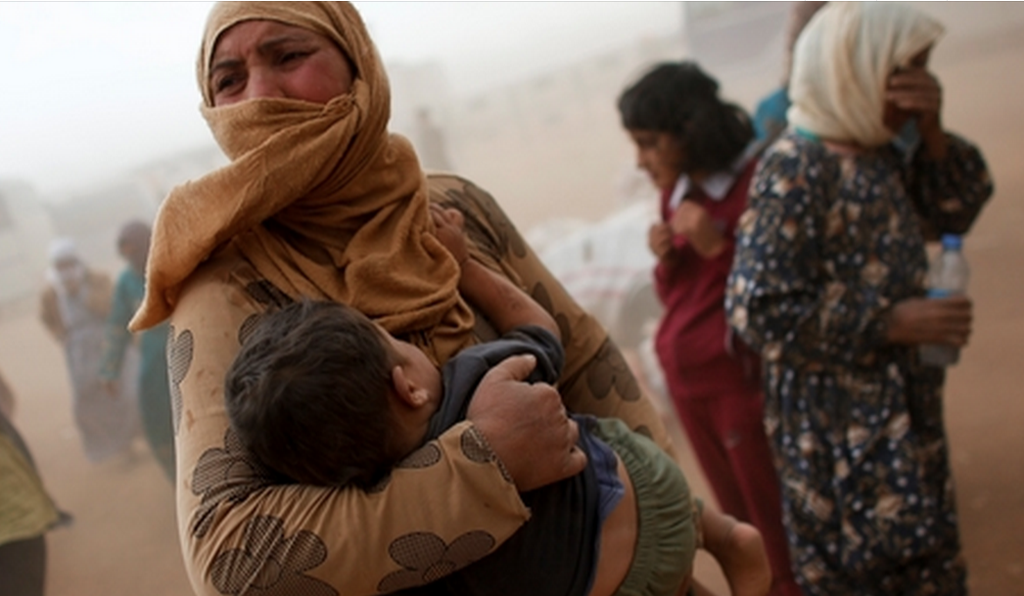BACKGROUND
Presidential candidate Jean Ping continued to contest the results of the August 2016 presidential elections, and in September 2017 he was temporarily denied the right to leave the country. Legislative elections were postponed until April 2018. In November, the report submitted by Gabon and parallel reports submitted by civil society organizations were examined under the UN UPR process.
KEY ISSUES
In January, the new Communications Code came into force. The Code was criticized by journalists for its vague and overly broad provisions, including prohibitions on Gabonese nationals working for local media outlets outside the country, and provisions banning the use of pseudonyms, holding printers and distributors jointly responsible for any infractions, and an obligation for media to “contribute to the country’s image and national cohesion”.
In March 2017, the authorities suspended the activities of CONASYSED, the main teachers’ union, citing “disturbance of public order” caused by strikes that began in October 2016. The Minister of Education also ordered the suspension of the payment of salaries to over 800 teachers in order to end the strike. In June 2017 the National Council of Communication banned Les Echos du Nord, a newspaper considered to be close to the political opposition, for statements deemed defamatory against President Bongo and Prime Minister Issoze-Ngondet. The outlet reopened in August.
In April 2017, Alain Djally, an assistant to opposition leader Jean Ping, was arrested without a warrant in the capital, Libreville. He was blindfolded and ill-treated by men in plain clothes, but allowed to see his lawyer the day after his arrest. After that he was denied access. He was detained at the Direction Générale de la Recherche, a facility run by the Gabonese intelligence services, before being transferred to the central prison in Libreville, where he was kept in solitary confinement for the entire period of his detention. He was charged with impersonating an active service member and illegal possession of firearms, for retaining his old military ID card and possessing a blank-firing gun. His lawyer claimed such a weapon did not require a permit, and that the charges were politically motivated. He was provisionally released in June 2017.
In June 1027, Marcel Libama, an adviser for CONASYSED and the union confederation Dynamique Unitaire, was arrested in Tchibanga city after discussing the case of a detained colleague, Cyprien Moungouli, during a Radio Massanga show. He was held for three days at a police station, and on June 20 transferred to the local prison. He was charged with insulting a magistrate, obstruction of justice and defamation. On June 17, Juldas Biviga, a journalist from Radio Massanga, was also arrested for refusing to delete recordings of archived interviews, among other things. On July 13, both Marcel Libama and Juldas Biviga were severely beaten by their prison guards. Suffering injuries to his ankles, ribs and ears, Juldas Biviga was transferred to hospital. They both received sentences of 184 days in prison and a EUR450 fine.
In August 2017, security forces arrested Hervé Mombo Kinga, an activist and prominent supporter of Jean Ping. He had publicly projected videos next to his internet café, and was charged with “instigating violence” and “insulting the Head of State”, and spent one and a half months in solitary confinement. He remained in detention at the end of the year.
The ICC continued its preliminary examination into whether alleged crimes committed after May 2016, including in the context of the 2016 presidential elections, could amount to crimes under the Rome Statute, and whether the criteria for opening an investigation were met. In June, representatives of the ICC conducted a two-day visit.
The constitution and legal code prohibit arbitrary arrest and detention without warrants, and also torture and the use of excessive force. However, torture and repeated severe beatings are routinely used on detainees, usually in order to obtain confessions. Arbitrary arrests without warrants are common, as is lengthy detention without charge or trial. Mandated fair trial procedures are only irregularly observed. Prison conditions are dangerously substandard. Severe illness or death in prison may result from incarceration, and prisoners are frequently denied access to decent food, basic sanitation, legal counsel, family members, and appropriate medical care. The judiciary and police are corrupt and inefficient; judicial decisions are heavily influenced by the government. Members of the security forces appear to have almost complete impunity if accused of involvement in extortions, beatings or unlawful killings of refugees. The security forces also harass, threaten, and extort money from noncitizen Africans working legally as market merchants, manual laborers, and domestic servants. Refugees are also discriminated against socially, economically and politically.
Privacy, freedom of speech and freedom of the press are restricted. The only daily newspaper is government-affiliated. Independent newspapers appear only irregularly and offer critical views of the government; however, they are hampered by frequent license suspensions, severe penalties for libel, and financial difficulties.
Gabon’s constitution affirms the equality of women and the gender equality and the government has ratified the Convention on the Elimination of All Forms of Discrimination against Women (CEDAW). However, there has been little or now progress in changing discriminatory laws. There are legal, social, and cultural obstacles to full equality for women. The legal code includes discriminatory wording on marriage, divorce, child custody, the minimum age of marriage, equal inheritance rights, and rights under polygamy. Domestic violence is illegal, but common, and police rarely intervene. Rape is also against the law but seldom prosecuted, and only limited medical and legal help is available for the victims. Female domestic workers, a number of whom are trafficked women and children, have been threatened and sexually harassed, with almost no recourse to legal help or justice.



